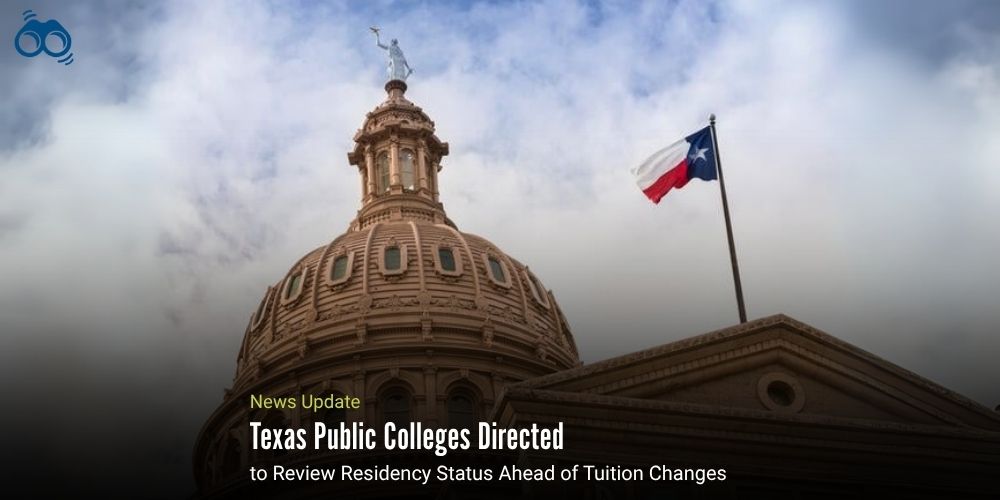Texas Higher Education Institutions Face New Mandate on Tuition Status of Undocumented Learners
State Officials Direct Public Colleges to Reclassify Undocumented Students as Non-Residents
In a development likely to reshape access to higher education across the state, Texas has begun implementing a controversial policy that eliminates in-state tuition eligibility for undocumented students. With nearly 57,000 undocumented individuals currently enrolled in Texas colleges and universities, the second-highest number in the country after California, the potential impact is both widespread and significant.
This change follows a recent federal court ruling, after which state officials instructed public institutions to identify and reclassify students without legal residency as out-of-state, thereby subjecting them to higher tuition fees. In a letter addressed to college and university presidents, Texas Higher Education Commissioner Wynn Rosser confirmed that institutions must audit their student records and reassign non-resident status to those “not lawfully present,” with the new fees taking effect from autumn 2025. However, the communication reportedly lacked specific guidance on how this reclassification should be implemented.
Adding complexity to the directive, U.S. colleges are not required to verify citizenship status during the admissions process. Melanie Gottlieb, Executive Director of the American Association of Collegiate Registrars and Admissions Officers, noted that most institutions do not track immigration status unless a student is on a formal visa, leaving no straightforward method to identify undocumented individuals.
Meanwhile, legal experts have raised concerns about the broader consequences. Ahilan Arulanantham, a professor at UCLA School of Law and co-director of the university’s Centre for Immigration Law and Policy, warned that increasing tuition costs may render higher education inaccessible for thousands of undocumented students educated in Texas public schools. He emphasised that many of these individuals have longstanding ties to the state, and the new policy risks excluding them from academic advancement and socio-economic mobility. This decision not only challenges institutional protocols but also poses serious questions about equity, educational opportunity, and the long-term implications for Texas’s future workforce.
Editor’s Note:
The recent directive in Texas to revoke in-state tuition for undocumented students raises serious concerns about fairness, access, and the role of higher education in shaping inclusive societies. With thousands of students affected, many of whom have grown up and been educated in the state, this change threatens to place significant financial and emotional strain on those pursuing academic and professional goals. Universities have long been places where potential is nurtured regardless of background, and where diversity is seen as a strength. This decision challenges institutional processes and also risks widening the gap between opportunity and exclusion.
Skoobuzz believes policymakers, educators, and communities must reflect on how to best support all learners, ensuring education remains a pathway to opportunity, not a barrier to advancement.














0 Comments (Please Login To Continue)